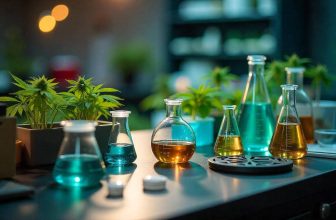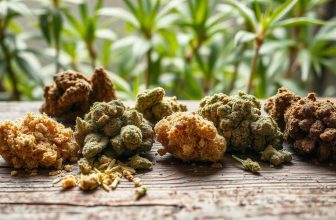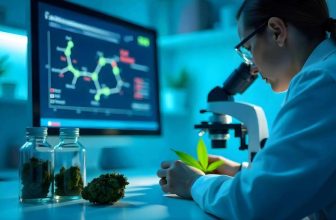THCP is said to be the most potent natural cannabinoid. It has recently been discovered and raises many questions in the CBD community. The effects of THCP could be promising, but also very powerful.
Faced with this novelty, it's important to be vigilant and to inform yourself effectively before buying from the best THCP site and consuming it.
What is THCP?
Cannabis plants contain no less than a hundred different molecules. And each of them has more or less positive effects on the body. THCP is currently the most powerful cannabinoid on the market.
Its particularity lies essentially in its similarity to THC (tetrahydrocannabinol). It was discovered in 2019 by a group of Italian researchers. However, there are a dozen variants of THC among the list of phyto-cannabinoids.
Research claims that THCP has a stronger impact and greater affinity on endocannabinoid receptors. It has longer alkyl chains.
In other words, it has many more carbon atoms than traditional THC. As a result, it would be more effective than some known cannabinoids .
The potential benefits of THCP
Although research into THCP is still in its infancy, there are some significant potential benefits. Preliminary studies indicate analgesic, anti-inflammatory and neuroprotective properties.
Deep relaxation
According to some opinions on THCP, the molecule could provide a significant relaxing effect. In fact, its affinity with cannabinoid receptors makes it relaxing. THCP could therefore combat stress and anxiety.
Today, many people suffer from permanent stress. It's a syndrome that can lead to serious health problems over time. So THCP could be a good natural solution to improve people's quality of life.
Pain relief
Like all cannabinoids, THCP is said to have analgesic properties. In fact, it could effectively relieve pain. The clear advantage of THCP is that it is more potent than CBD.
This molecule could be a good solution for people who don't get enough relief from CBD. Its pain-relieving benefits could be studied in greater depth to support more serious health conditions.
THCP could help people suffering from chronic pain, autoimmune diseases or cancer. It would be effective in relieving the effects of oncology treatments such as chemotherapy. For the time being, research is still underway, and no definite claims have been made.
Improved sleep
THCP is said to have sedative properties similar to those of THC in higher doses. Some people use cannabis to help them fall asleep. However, this is not the best option, as the substance is considered illegal in France.
THCP could therefore be a legal and effective phyto-cannabinoid for combating insomnia. What's more, a small amount would be needed to experience significant relaxation.
Studies are still underway to determine THCP's efficacy and its short- and long-term side effects.

Comparison with THC
Many researchers describe THCP as potentially more potent than THC, but there is as yet no definitive proof. However, the presence of extra atoms would enable it to bind more tightly to receptors distributed throughout the body.
This would make it possible to consume a smaller quantity of THCP than THC. THCP has been found to have 33 times greater affinity for CB1 receptors than THC, suggesting better binding.
According to some theories, THCP may be responsible for the potency of each variety. Even if THC content is equal to or higher than THCP, it could be that the molecule Tetrahydrocannabiphorol is largely responsible for a plant's potency.
This suggests that THCP may have a greater effect on the body. It is essential to stress that all this data remains at the theoretical stage. Researchers are currently conducting in-depth studies on this particular cannabinoid.
In short: should THCP be tested?
Although THCP has promising properties, it has not yet been identified as safe. So it's important to be vigilant. Each individual is responsible for his or her own consumption.
Individual experience can vary considerably depending on the dose consumed and personal tolerance. As THCP has not yet been sufficiently studied by scientists, it is not on the list of banned substances.
Although THCP is a phyto-cannabinoid with a low THC content, there are a number of questions about its toxicity and addictiveness.
Follow us on 
Join the Community
Don't miss any news with our newsletter





